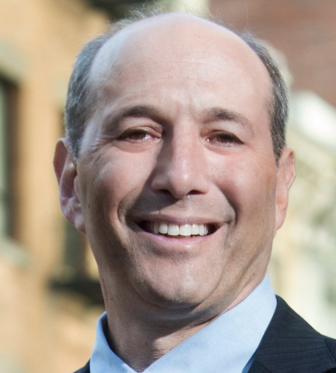This is the first article in a series: “Fame, brand, spin, debt and and the slow corruption of moral neglect.”
 The greatest concern that we should have about self-governance today is not our officials, but ourselves. Democracies ultimately are held together by trust. We actually expect a lot from our fellow citizens: learning the issues, voting, holding leaders accountable, listening to opposing views, paying taxes, showing up for jury duty. We will only do all of this if we believe most other people will as well. If you’ve ever been to a failed democratic state, you know that they began to rot as soon as too many people lost this faith – when they concluded that the system was rigged, and they were being cheated.
The greatest concern that we should have about self-governance today is not our officials, but ourselves. Democracies ultimately are held together by trust. We actually expect a lot from our fellow citizens: learning the issues, voting, holding leaders accountable, listening to opposing views, paying taxes, showing up for jury duty. We will only do all of this if we believe most other people will as well. If you’ve ever been to a failed democratic state, you know that they began to rot as soon as too many people lost this faith – when they concluded that the system was rigged, and they were being cheated.
At a time when we need citizens to reveal their strength of character, we find that trust has been battered, and there’s been a breakdown in some of the virtues that make good citizens. In particular, we have fallen under the spell of counterfeit virtues that actually degrade our character — fame, brand, debt, and spin.
As a people, we’ve come to pursue fame over achievement, cherish brand over quality, mistake debt for wealth, and accept lies and spin as facts. And it is making us weak.
While people may have different definitions of good citizenship, at the very least, it requires doing something that contributes to people other than yourself. If we cheat on your taxes because we’d rather keep the money yourself, we are not being a good citizen. If we lie to get out of jury duty, or vote only for our own selfish interests, we are not being a good citizen.
In “Profiles in Courage,” John F. Kennedy wrote that being a good citizen does not require any special talent or skill – just a willingness to sacrifice. He wrote, “You don’t have to have a college degree to serve. You only need a heart full of grace. A soul generated by love. And you can be that [public] servant.” By contrast, the current President thinks sacrifice is for suckers. Responding to criticism that he did not believe in sacrificing in the service of others, in 2013, he tweeted “Sorry losers and haters, but my I.Q. is one of the highest — and you all know it. Please don’t feel so stupid and insecure. It’s not your fault.” In half of a human lifetime, we’ve gone from electing John F. Kennedy to electing Donald J. Trump.
We’ve gone from Neil Armstrong to Lance Armstrong.
We need to understand what is causing this. It’s not that the truth about service, sacrifice, and citizenship has changed. Or that human DNA has changed. We are the same people living in the same world. Something else is going on. We are vulnerable to anti-democratic norms, because we have allowed our democratic commitments to rot.
The first example is mistaking fame for achievement.
Fame is neither good nor bad nor meaningful. People who produce something particularly interesting or valuable to others, sometimes become well-known. Even famous. But only a small fraction of these achievers become famous. And what is more, fame doesn’t mean you’ve achieved anything. Kato Kaelin is famous. When society is operating normally, fame is a random thing – not a pursuit, let alone a substitute for achievement.
But fame has come to eclipse achievement as a goal, in part because of technology. Andy Warhol predicted that “in the future, everyone will be world-famous for 15 minutes.” New technologies then and since have made international fame possible to more people, more quickly than ever before in human history. It used to be easier to achieve something than to be famous. Now it is easier to be famous.
Our technologies measure fame and give it a platform. Going back to the 60s, the Nielsen ratings discovered how to show advertisers which programs were popular rather than good. Pollsters helped politicians recognize which ideas were popular rather than good.
At the same time, we created more means for people to be seen by large audiences. Cable TV had more air time than things to air, so they came up with programs that do not require talent, “reality shows,” which are cheap and easy to produce. Fairly soon, people were becoming famous for doing pretty much any normal human activity — dating, gossiping, cooking, over-eating, losing their temper. My favorite example is “Big Brother” which seems to film long stretches of people sleeping. We’ve made stars of the Real Housewives of every city on the planet. And — with the advent of social media – we created a whole new dimension – the Kardashian family. Where fame itself is the achievement.
With social media, we now collect and measure fame precisely and for its own sake. We measure people on-line by how many “likes”, “friends” and shares they get. Kim Kardashian has 30 million friends on Facebook. Her achievement, her contribution to society, as far as anyone can tell, is that she has 30 million friends on Facebook. There is no distinction made between her and people who have produced something for others to enjoy. The logic is that if she is famous, she must be doing something valuable. Or she wouldn’t be famous.
It hasn’t always been this way. In fact, to put this in perspective, just a few decades ago – we mocked fame for fame’s sake.
In the 1980s and early 1990s, Robin Leach hosted a popular show “Lifestyles of the Rich & Famous.” The show’s main purpose was to mock the conspicuous consumption and shallowness of the people who were willing to appear on the show.
Donald Trump appeared on it in 1994.
Among other memorable things he said in that episode he stated that he was glad his then-one-year old daughter Tiffany had inherited his beautiful wife Marla’s legs and he hoped she’d also get breasts like Marla. He was the perfect guest for that show.
But that same man, operating the same way, is no longer a commercial developer showing off for Robin Leach. Or even the star of his own reality t.v. show. He is now the President of the United States. And he understands that the rules changed. Fame is now considered an achievement in itself.
An unhealthy percentage of people do not appear to draw a distinction between his fame and what he has actually done. For example, whether you like or dislike President Trump, objectively speaking, accuracy is not his strong suit. Yet, 36% of all Americans today believe that he is honest and trustworthy. Despite all of the evidence to the contrary.
Trump himself said that if you are famous, people will let you get away with anything. He bragged about using his fame to grope women without waiting for their consent. “When you’re a star they let you do it,” Trump said. “You can do anything.” Indeed, he said “I could stand in the middle of 5th Avenue and shoot somebody and I wouldn’t lose voters.”
He’s not the only one who has figured out that fame can be a faster and simpler way of getting what you want, than actually doing something that requires sacrifice for others. Today, for a fee, people’s profile can appear first on your Google search — creating a false fame. For a fee, businesses can boost their Yelp reviews. Advertisers can secretly enlist on-line influencers to make their products famous. Who needs to wait for one Neil Armstrong each generation, when you can create a new Real Housewife of somewhere every week? Unconsciously, we’ve come to measure success less and less by accomplishment or achievement for others, and more by the number of clicks.
This elevation of fame over achievement isn’t harmless. It is just the opposite and it’s insidious. It is putting yourself ahead of others. It is about doing whatever draws attention, instead of doing good. It is the opposite of sacrifice, the opposite of integrity.
David Bowie’s song about Fame wasn’t an ode to fame, it was a warning about the emptiness of it.
Fame puts you there where things are hollow (fame)
Fame, (fame) what you get is no tomorrow
Fame, (fame) what you need you have to borrowFame

Piedmont resident, lawyer and former aide to President Obama, Bleich served as special counsel to the President, U.S. Ambassador to Australia, and senior advisor. He’s led the board of California’s state universities, as well as leading the State Bar.